|
Dusty Dog Reviews The whole project is hip, anti-academic, the poetry of reluctant grown-ups, picking noses in church. An enjoyable romp! Though also serious. |

|
Nick DiSpoldo, Small Press Review (on Children, Churches and Daddies, April 1997) Children, Churches and Daddies is eclectic, alive and is as contemporary as tomorrow’s news. |
Volume 213, October 2010
The Unreligious, Non-Family-Oriented Literary and Art Magazine
Internet ISSN 1555-1555, print ISSN 1068-5154
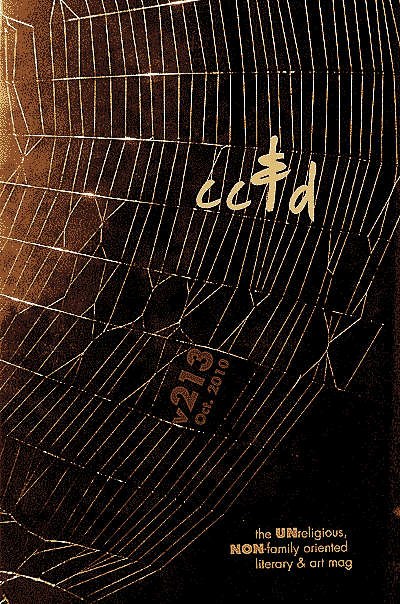
see what’s in this issue...
Note that in the print edition of cc&d magazine, all artwork within the pages of the book appear in black and white.
|
Order this issue from our printer as a an ISSN# paperback book (5.5" x 8.5") perfect-bound w/ b&w pages You can also order this as the 6" x 9" ISBN# book “Out of the Web”... |

poetry
the passionate stuff
SlaveryJe’free
Wash my face with papaya soap,
Wash my hair with coconut shampoo,
I wake up the next morning, hopefully
There will come a time for a routine-change, But for now, let me stick to the program...
|
Tranquility Haiku (verse 2))Je’free
One with the seasons,
|
Full Metal Emotional AvailabilityCEE
If Love is not a feeling
|
This Here Question of an “Us”CEE
I hear you, human woman person
Why???
Still don’t get it?
|
everyone’s a niggaJohn A. Grochalski
the white boys rapping equality and diversity at last ain’t it grand?
|

New York’s DNA, © 2010 Metin Bereketli, www.hollywoodpainter.com
TimekeepersDavid E. Cowen
an old clock
an old man
a nurse coming in
as orderlies enter
|

art by Brian Hosey and Lauren Braden
My friend saysMichael Hoag
My friend says the left foot is longer than the right.
|
| Michael Hoag reading his poem My Friend Says Read from the 10/10 (v213) issue of cc&d magazine (also released as the ISBN# book Out of the Web |
|
live at the Café in Chicago 10/05/10 |
the backwater treeJohn Thompsonauthor of ‘black petal rose’
in the back yard
a mother has given birth to a dead calf;
|

Tree Spirit, art by Mark Graham
One Through FiveMichael S. Morris
1. Vivian Leigh has died, so you don’t
2. Yes, I know you have a cold. But a fever?
3. Yes, I saw the full moon with its ragged
4. No, you’re not dying, But yeah sure you could be
5. But, honey, in the mean time — where’s my wine?
|
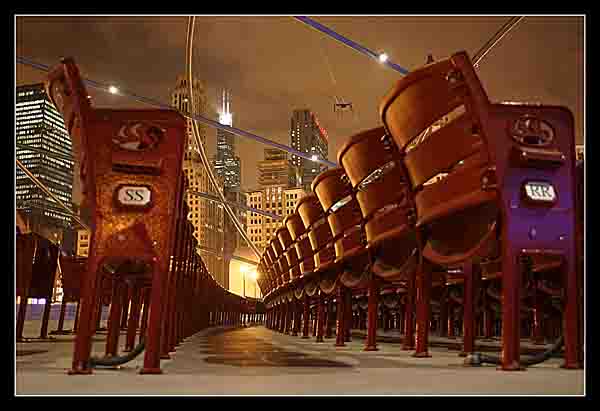
Theatre Seating, art by Nick Brazinsky
Good Bad YearEric Obame
Twelve months and a third less income
|
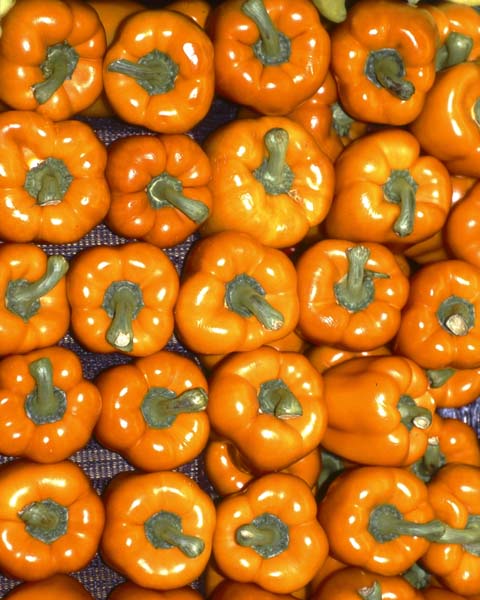
Orange Peppers, art by Peter Bates
who can also be found at PixelPost
Just Because I’m A Female SoldierK.D. Iredale
Just because I’m a female soldier
Just because I’m a female soldier
Just because I’m a female soldier
Just because I’m a female soldier
|
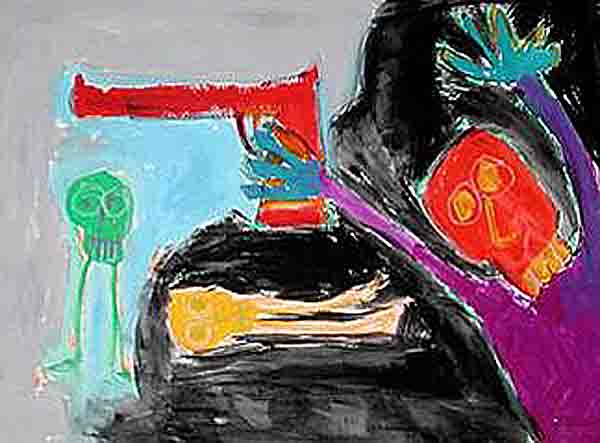
Manslaughter, painting by Jay Marvin
Beckon the BeastTom (WordWulf) Sterner
“I am not sure I possess,” he says
|
Blood & Earth I WriteTom (WordWulf) Sterner
I would paint with words
|
Tom {WordWulf} Sterner BioTom {WordWulf} Sterner, lives in Redding, California and Arvada, Colorado. He has been published in magazines and on the internet, including Howling Dog Press/Omega, Skyline Literary Review, The Storyteller, and Flashquake. He is winner of the Marija Cerjak Award for Avant-Garde/Experimental Writing and was nominated for the Pushcart Prize in 2006 and 2008. He edited the English translation of Hameed Al-Qaed’s ‘Noise of Whisper’, edited and wrote the forward for the Arabic to English translation of the poets of Bahrain, ‘Pearl, Dreams of Shell’ published in 2007. Published work includes two novels, Madman Chronicles: The Warrior and Momma’s Rain.
|
Fingers BlackJanet Kuypersin a series of twitter-length poems 06/15/10 you told me nothing
all I could do
|
| Janet Kuypers reading her twitter-length poem Fingers Black Read from the October 2010 issue (v213) of cc&d magazine, which was also released as the 6" x 9" ISBN# book Out of the Web |

Watch this YouTube video live at the Café in Chicago 10/12/10 |
Bar Poem 20100423Janet Kuypersin a series of twitter-length poems 04/23/10
& I tried to shake my confusion out of my head
|
Somewhere ElseJanet Kuypersin a series of twitter-length poems 06/15/10
we’ll put sharp metal points
we don’t care if you’re tired
|
| Janet Kuypers reading her twitter-length poem Somewhere Else read from the Oct. ‘10 (v213) issue of cc&d magazine (also released as the ISBN# book Out of the Web |

Watch this YouTube video live 10/26/10, live at the Café in Chicago |
PinchyJanet Kuypersin a series of twitter-length poems 06/18/10
a lobster tank @ a bar
8 lobsters
if I ever caught 1
Twitter version:
PinchyJanet Kuypersin a series of twitter-length poems 06/18/10
“you catch ‘em we cook ‘em”
if I caught 1
|
Keep DrivingJanet Kuypersin a series of twitter-length poems 06/15/10
you drove a convertible
please
|
| Janet Kuypers reading her twitter-length poem Keep Driving Read from the October 2010 issue (v213) of cc&d magazine, which was also released as the 6" x 9" ISBN# book Out of the Web |

Watch this YouTube video live at the Café in Chicago 10/12/10 |
Evicted TodayJanet Kuypersin a series of twitter-length poems 06/15/10
Buddha was evicted today what what happened
|
| Janet Kuypers reading her twitter-length poem Evicted Today Read from the October 2010 issue (v213) of cc&d magazine, which was also released as the 6" x 9" ISBN# book Out of the Web |

Watch this YouTube video live at the Café in Chicago 10/12/10 |
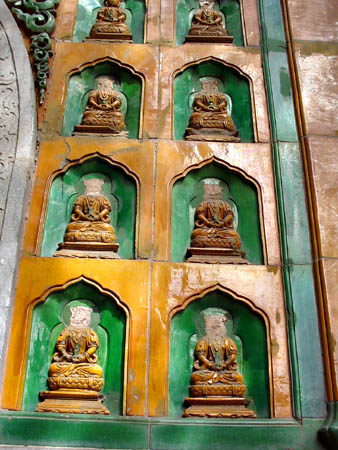
Live in my ImaginationJanet Kuypersin a series of twitter-length poems 06/15/10
I wish I would find a reason
|
| Janet Kuypers reading her twitter-length poem Live in my Imagination Read from the October 2010 issue (v213) of cc&d magazine, which was also released as the 6" x 9" ISBN# book Out of the Web |

Watch this YouTube video live at the Café in Chicago 10/12/10 |
opinionsJanet Kuypersin a series of twitter-length poems 06/15/10
if your fish die and much better than cats |
RushedJanet Kuypersin a series of twitter-length poems 06/15/10
a woman
after 15 minutes
|
| the Janet Kuypers poem Rushed Read from the 10/10 (v213) issue of cc&d magazine (also released as the ISBN# book Out of the Web |

Watch this YouTube video live at the Café in Chicago 10/05/10 |

Watch this YouTube video of the intro from the open mic @ the Café in Chicago 10/05/10, w/ Kuypers reading her poems “You Cannot Burn Me” & “Rushed” |
The DistancesJames L. Jones, Jr.
I awake, just like I was.
|

art by Eric Bonholtzer
EntryTWIXT
The achievement of entry penetrates
|

Cells, art by Tray Drumhann
About Tray Drumhann
|

prose
the meat and potatoes stuff
Sahara ShoresJohn Duncklee
For eight minutes the shock of the earthquake shook the Sahara Desert. The earth trembled and the movement sent fear into the minds of all animals.
Hadji Ali knows every one of his twelve camels. He knows how much weight each can carry and he knows their different endurance limits so that he can judge how far to travel without feed or water for them. Hadji is a smuggler. He does not restrict his operations to any particular class of contraband; Hadji will smuggle anything that he can load onto his camels.
Carlos Apodaca watched the seismograph located at Sunset Crater north of Flagstaff, Arizona and couldn’t believe his eyes reading a 13 on the Richter Scale. In his ten years at the place he had never seen such a measure of tectonic activity. Immediately he switched his computer to network other seismographs around the world and found that by triangulating his reading with two others that the earthquake had occurred in the Sahara Desert, a most unlikely place for such a phenomenon according to his education that he had pursued to a master’s degree in geology.
Hadji had his camels moving out at their usual three miles an hour pace heading westward for Morocco with the hashish he had agreed to deliver to his contact in Tangier. They traversed the nearly 1500 foot high Tifernine Sand Dunes whose sand is trapped in a basin surrounded by mountains of basalt. The camels moved with a certain reticence that Hadji had never experienced. He wondered what else was affecting them. He no longer felt the earth move, but the camels seemed to be trying to tell him something. Then he saw what his camels knew but could not tell him. From his position above the surrounding desert Hadji saw a sea of water advancing in finger-like rivers. He turned the camels to even higher ground after wondering if he was seeing a mirage. “What is Alla doing?” he said aloud to the camel he rode. “Perhaps I should stop smuggling if I do not drown first.”
The 747 had begun the gradual descent to land in Cairo. Passengers included four United States Congressmen, their aids and assistants along with a bevy of newsmen scheduled to meet with President Mubarek for a conference on the democratization of Egypt. The Captain, a veteran of the Navy during the Vietnam War, enjoyed the charter flights that took him all over the world. Mike Bader loved to fly. Flying had been his primary focus since he received his private pilot’s license while still in high school.
The conversation between the congressmen at supper flitted around a great variety of subjects that one or another felt important to take up with the President of Egypt the next morning. Not one brought up the flooding of the Sahara Desert.
Still in awe at the sight of the flooding, Hadji Ali gazed out at the former desert landscape from his position on the mountain trail that he had taken on occasion. But, always before he had preferred the sands. He couldn’t believe his eyes as the water slithered up valleys and spread over the sand. It hummed as it filled the pores in the sand. He was thankful that the camels had calmed and were no longer threatening to run away to escape the flood. Hadji felt proud that he had forced them to climb on the rough basalt. That had saved them from drowning in the vast sea that opened up in front of his eyes.
The meetings with Egyptian government officials lasted another day but without Mubarek who had excused himself because of “important pending matters”. When the congressmen and their aids returned to the hotel they were astounded to see a group of six well known land and resort developers from the United States sitting around a table in the lounge drinking Margaritas with Mike Bader and his co-pilot.
From their table in the corner of the huge lounge Mike and Charlie watched the big party that the developers put together for the congressmen and their aids. “Makes you wonder who is paying who for what, doesn’t it?” Charlie asked.
The following morning Mike and Charlie, carrying their sparse luggage, walked through the terminal glancing around at the people in the waiting room. They arrived at the assigned gate to their aircraft and went aboard to prepare for the flight to Washington. Once settled in the cockpit after getting the preliminary checks underway, Mike turned to Charlie. “Did you see those hung over bastards in the waiting area?”
For the following six months the developers met with bankers. Politicians met with other politicians and they all met with North African leaders making deals and arrangements so that the gigantic project could start. Meanwhile five hundred survey crews darted around the perimeter of the freshwater inland sea staking out everything from residential lots to large-scale community centers where recreation and shopping would eventually become located. Shortly after the survey had been accomplished work began on the huge electrical generating plant that would use the energy from the still gushing water from the fissure to generate enough electricity for the entire project that would include electric trains for transportation to various cities outside the perimeter of the project which had finally been named Sahara Shores. The various planned communities became Sahara Shores plus the names of the countries in which they sprang up. There would be vast communities made from polystyrene. For example the major community along the inland sea in Algeria became “Sahara Shores Algeriad”. The one in Mauretania became “Sahara Shores Mauretaniad”.
Hadji Ali watched all the activity from a distance as he drove his camels back and forth from Tangier, Algiers and Cairo. The huge inland sea of fresh water made his journeys easier and took less of a toll on his camels so that they could make more trips with fewer rest periods. Before the inland sea they needed to rest after being dehydrated from five and six days without water. With the new water source Hadji could easily water the camels every other day.
Within a year there were enough communities finished that video people and producers arrived to film the enterprise for advertising on television around the world. A.N.U.S. wanted international sales for an international population to prove that human beings could live in peace once they understood each other, a gesture to balance their greed. They could also sell to people all over the world.
Within two years the resort complexes, residential areas and some of the industrial zones had begun to fill. There were twenty-four models for homebuyers to choose from. The resorts had separate designs to enhance individuality. A sailboat maker had set up a production line complete with a heavy-duty filter to keep odors from fiberglass to a minimum inside the plant and let none of it escape to the outside the same as the polystyrene plants located outside the developments.
Hadji Ali prospered. He now drove twenty camels. The demand for hashish had increased and the prices in Tangier he received for his favorite commodity had tripled. He was still able to purchase the hashish at a price that gave him a substantial profit. The lengthy treks across North Africa were far easier with the abundant water even though he had to sneak his camels to the shore during the night because the shoreline was crowded with buildings and Hadji had no desire to be caught and try to explain what he was doing with twenty camels drinking their water and crapping on their sand. He became aware of the newcomer attitudes toward his camels when he started bringing in Berber rugs on his return trips. The rugs sold quite well, but he decided that the hassles from the various “Environmental Enforcers” complaining about his camels discoloring the sand were not worth the effort he had to go through to make a small profit compared to what he earned from the hashish trade. After selling two hundred rugs he withdrew and resumed “dead-heading” back to Cairo.
Harry Atwater the new CEO of Sahara Shores had an array of degrees. He had earned a Bachelors and Masters in engineering from M.I.T. and a PhD in Geography and Area Development from Arizona State University. Atwater listened to the board of directors as they went through the reasons why they had replaced Loring Lincoln. The principal factor was the strong complaint from the Sahara Shores Water Company Ltd.. One of the hydroelectric generators burned a bearing and the subsequent shutdown for repair had caused a brownout and the freight train that hauled the cases of bottled water to the outlying airports didn’t have enough power to operate. The result was warehouses overflowing with outgoing cases of Sahara Shores Water.
On May 10th, two months after the board meeting in New York, Roy Sanchez kissed his wife of thirty years and wished her “Happy Mother’s Day”. Mexican Mother’s Day always fell on May tenth. They had moved to Sahara Shores from Los Angeles eight years before, after selling their small house in the San Fernando Valley for five hundred thousand dollars.
Hadji had watered his camels just after sunset and had driven them about nine miles to a place he had been using as a camp for more than ten years. He walked among the camels when the shaking began, trying to calm them as best he could. The shaking felt stronger than he had experienced ten years before when the water arrived. The sucking sound didn’t help his concern about the camels. With twenty, he had to trot up and down the strung out line to touch them and talk to them. One by one he had them go down to the sand. He was glad that he had trained them well. No longer standing the camels were in less position to run away. Hadji cocked his head to listen to the strange sound. His campsite was just beyond a large Barchan dune. He soon gave up trying to figure out what was making the noise and rolled out his bedding, a nice Berber rug large enough to fit his five foot ten inch body.
Roy and Maria read the notices on the computer together. All residents and visitors to Sahara Shores would be evacuated as soon as the freight trains had hooked up to the emergency diesel/electric engines. Everyone should be advised that only basic clothing would be allowed aboard because space was limited and speed was needed to get everyone out before the bottled water ran out.
A month later Hadji Ali drove his camels down to the former Sahara Shores and looked around. He saw no people and there were still no lights as had once sparkled in an early evening. He dismounted next to the house that had been Ivan P. Daily’s Sahara Shores residence, walked over and tried the door. It opened. Hadji walked in and looked around. The place looked like the owner would return at any minute for supper. Hadji walked over to a cupboard and opened the glass door through which he could see a number of bottles. He took one out and looked at it. He had seen the label before and recognized it as tequila. Hadji never drank spirits, but way out here with nobody to witness his transgression, he decided to partake. He hoped Alla would understand. He took the bottle out to the porch and put it down next to the comfortable chaise lounge that by now had an accumulation of sand on it. He brushed the sand away, but before sitting down he went back to his camels and had them go down to spend the night. He told them that he would load the Berber rugs from the houses and take them back to Tangier and sell them back to the rug merchants.
|
E.D.Ronald Brunsky
Without a doubt, God has a unique sense of humor. Look at the world we live in. The better something tastes, the worse it is for you. Spend too much time in the great outdoors, and you’ll develop skin cancer.
|

Smile2, art from the HA!man of South Africa
Ocean’s PoundingJeremy Closs
“I’m going running, mom,” she says. She waits for the yell.
They had walked into Robert E. Lee High on the first day of school hand in hand, and kissed each other goodbye when the first bell rang. Before the day was through, they had been called into the principal’s office and received a heated lecture forbidding any further offensive displays of affection. When the principal said affection, it sounded as though he was spitting out some awful piece of rotten meat. Traci had pointed out how often the students saw the football stars making out with their girlfriends of the week in the hallways. The principal flustered something about how boys will be boys. The girls received a week’s detention, and a strong feeling that their kind wasn’t wanted in this proud school.
Traci’s back yard is a good quarter-acre, with the back fence coming right up to the edge of the beach. Right through her back gate, there’s about ten feet of soft sea grass, then all is ocean and sand. As she reaches her back gate, she kicks off her sandals and rushes towards her beach; the verdant grass brushing her, the cool morning sand bringing her alive. Traci had spent the first six years of her life away from the sea. Her idea of a large body of water was the lake that her dad would take her to in the summer. Then he had gone away, gone forever, and Traci hated him for it. Her mother told her that they were moving, and Traci decided she would hate wherever they went, because it wasn’t where he had been. She had arrived at her new home in a haze, not seeing or hearing anything. When they got to the new house, she rushed to her room and flung herself on her bed. She cried for an hour. As the last of her sobs were running out, she began to hear something. It was like a great, comforting breathing all around her. Then she looked up through her bedroom window for the first time, and saw the sea. It filled her eyes, and for the first time she felt her heart may heal.
Traci met Amy when they were both twelve years old. Traci had been walking along the beach on a breezy June day. The beach in front of her house was packed with tourists, so she decided to head to the cliffs. The cliffs were about half a mile down from Traci’s house. They were almost sheer walls of rock which went on for about two miles. Traci hadn’t started running yet, but she loved walking alongside the cliffs. Thet were underwater during high tide, so there was always something new to look at. More importantly, most of the tourists stayed away, so aside from a handful of locals, this stretch of beach was hers. Traci continues running along the beach. She has just reached the cliff. If she had not been so lost in thought that morning, she would have paid more attention to the close violence of the sea. As it is, though, the roaring of the sea matches the pounding in her heart, and she runs on. As she run, she remembers how her friendship with Amy had grown. Amy had spent almost every day that summer over at Traci’s house, talking, playing, growing through that great summer of change together. When fall came, they entered school side by side, and stuck together through the storm of middle school raged around them. The cruelty of their peers crashed against the wall of their friendship.
They had other friends at school. They had a group of six other kids who made up a posse of outcasts, spurned by the popular and unpopular alike. They were the group that the geeks called nerds. But they were loyal to one another, and they kept each other from going insane. They were introduced to pen and paper role playing. It was a great unearthed treasure in the land of their imagination, birthed from the fertile fields that J.R.R. Tolkien’s trilogy and its descendents left so fertile. The new Dungeons and Dragons system left room for endless adventure, and these outcasts spent most Friday or Saturday nights exploring dungeons, fighting orcs and looting treasure. There was only one other girl in their group, Sharon. She was going steady with one of the five guys. Traci thought that she would get a crush on one of the other four guys. That didn’t happen, even though she was well in to puberty, with her body changing and growing so quickly that her mother sometimes joked about getting the ceiling fans taken out of the house, just in case. Her hormones were raging so quickly that she was sometimes sure that she could really feel them crushing through her body, and her sex drive kicked into overdrive at least once a day. But she still didn’t find herself looking at her boy friends as anything more than friends. She couldn’t see any boy as anything more than another person. They didn’t excite anything in her. But when she was around Sharon and Amy, she felt a stirring in her she had never known. She didn’t know what this new feeling was, but she knew she liked it, and she knew she wanted more.
She is over halfway along the cliffs now, and her mind finally rouses itself out of memory enough to recognize the ocean rushing across her feet. She slows to a jog, and thinks that the water shouldn’t be anywhere close to her, it’s too early. Then she remembers what her teachers had told her on Friday, reminded her again and again – set your clocks back this Saturday night. She had forgotten. She was always sure to go running early in the morning to beat the tide, but today she has forgotten, and now she’s racing the tide. She knows that if the water gets deep enough before she escapes the cliffs, the storm waves will throw her against the rock like a forgotten ragdoll. She starts running faster.
Traci and Amy decided to come out to their posse at the start of that summer, right after school let out. The eight of them had been in Traci’s living room, running two campaigns on two tables, drinking Mountain Dew, eating Cheetos, laughing, enjoying the bonds of solidarity and friendship. Traci’s heart was pounding. She’d been researching stuff online, and she knew that girls her age coming out wasn’t anywhere close to unusual. Girls did it all the time. But she was still nervous. She couldn’t remember ever meeting another homosexual in her town. Either they all kept quiet about who they were, or they’d been scared off. Traci was old enough to recognize that tolerance was low on her town’s list of virtues. She thought her friends would be different. They had talked about this kind of thing before, about how stupid they thought people like Fred Phelps and Rush Limbaugh were, but that had been different. It’s easier to go against the grain in the abstract, but when it’s your friend? That changes things.
Traci’s mind is still swallowed in panic. She doesn’t even see where she is when the wave picks her up off her feet and carries her towards the cliff. Her vision is clouded and wild; all she sees is raw rock flying towards her. As she is plunged into darkness, her first coherent thought is that she has died. Then she feels the water around her, pushing her forward, and she sees. She is in their cave. The sea has taken her home. She is floating on her back, and above her the cave’s ceiling is burning with natural fluorescents. She whispers “Starfire,” and the wave starts pulling her out again.
They waited until their parents were asleep. They had to; after the death threats, they had been forbidden to step outside the house. But they had to see each other, they had to talk, so when they had called each other under the close supervision of their parents, they had agreed they had to meet in their cave that night. They hadn’t said so in such plain language, of course; they had used the language all lovers know as their own special tongue. When the house was silent, save her mother’s snores and the ocean’s breath, Traci pulled on a sweater and crept out of the house. She ran in the cloudy darkness of the beach. Even with no moon and stars to guide her, she found her way to the cave. The cave had been the sacred hiding place for all their greatest secrets back when they only knew each other as friends – when they had lamented the unjust sentence of their periods, when they had compared the mystery of breast growth, when they had made lucid plans to run off to the same college together when they graduated. They knew it was the only place for them to talk about what had happened.
She is close now, so close. She can see the end of the cliff. She knows she can reach it. Two hundred feet, a wave. One hundred feet, a wave. She is almost knocked down again. Fifty feet, a wave, and she is clear of the cliff.
She wakes up in a room filled with white light. She tries to look around, but she is too weak to lift her head.
It is later. She is home now, but she forgets how she got there. She is in bed; the sunlight of day’s end streams through her bedroom’s far window and sets her room on fire. She lies there for a moment, feeling the sheets beneath her, smelling the smells she has let herself grow used to, tasting each breath as it moves through her. She feels time slip over her. After lying like this for five minutes, the door opens and Amy walks in. She doesn’t speak as she makes her way over to the bed. Traci scoots over to make room for her, just as she has done a hundred times before. Amy lies down with her back to Traci, and Traci wraps her arms around her. She scoots up and rests her chin on Amy’s raven hair. Traci breathes deep, smelling the salt caught in Amy’s hair. They lie together for a moment, then Amy gives Traci’s hand a squeeze and gets up.
|
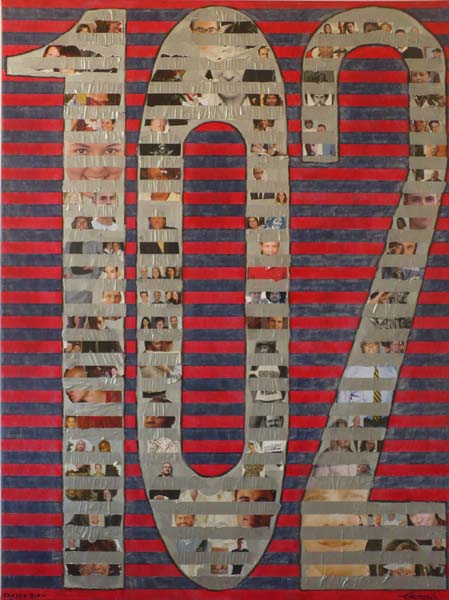
Eraser Burn, art by Aaron Wilder
In Conversation with My MindNatascha Tallowin
A girl sits, a book arranged in her lap. She holds a black biro between her fingers.
Motionless.
A clock ticks loudly from another room.
A dog barks, scratches against the back door.
She jumps, mind flung far at every unexpected noise.
The dog barks again, claws tap against the wood.
Earlier she had trapped a spider under a glass near the door and she was reluctant to move from the safety of her chair.
|
Natascha Tallowin BioNatascha Tallowin is a writer and poet from Suffolk, England. Whilst most of her time is spent writing poetry and sitting in patches of sunlight on the floor listening to David Bowie, she is also working on a magic-realism novel entitled ‘Guylian’s Magic’.
|

She Moved, art by Cheryl Townsend
BluebirdsAmanda Hamilton
“Why don’t the birds come?”
“They’re here,” she cried out as she twirled to face Jared. Her eyes shone brightly and a wide grin spread over her face. She rushed forward to grab his hand and pulled him to the window. In the birdhouse hanging on the big maple tree outside were two bluebirds flying out, hopping around the ground and gathering materials for a nest, then flying back up and disappearing into the tiny hole in the front of the house. Jared smiled and held her tightly as they watched. For the next few weeks things were how they used to be. Jared and Ruby flirted with each other again, and Ruby sang as she went around the house. Jared spent more time upstairs when his wife was home. Ruby only looked out the window once in the morning and once in the evening to check on their new tenants, and though the birds were usually hidden inside their house, she was contented. About two weeks later, there were eggs in the box. Ruby had gone out to peek in from a distance and seen a faint glimpse of blue. “Do you think there’s anything we can do to help?” she had asked, sitting at the kitchen table with him. Their hands were clasped and she rubbed her thumb over his knuckles. “I think they’re okay,” he told her, looking toward the window. “I dunno much about birds, but I’m pretty sure they can take care of themselves.” He could see worry in her face as she looked to the window and he squeezed her hand. “If they needed help they wouldn’t be here. They’re fine. Okay?” She turned back to him, looked at his face for a long time. Then, she smiled. Nodded. That night, when they were in bed and settling in under the covers, she turned to him. “I think we should try again.” Jared felt his stomach turn and he took a deep breath, trying to calm his racing heart. “Are you sure? Do you think we...” he trailed off, looking away from her wide green eyes. She reached over and took his hand and he looked back up. Her face had changed so it looked like she might cry, but she was still smiling. She nodded. They made love and it was as passionate as the first few months of their marriage. Before sex was terrifying, before “children” was a forbidden word. They were not imagining that small body, cold and blue. For the time, they simply were.
It did not last long.
|
Chapter 1:
Naturi Thomas |

Plea, art by Edward Michael O’Durr Supranowicz
Walk With Me AwhileIrene Ferraro
Outside, in the sun-blazed parking lot, the young people chattered. Children of hope and despair, they listed the contents of their dreams freely, never convinced that planted seeds bear fruit. This was a direct result of the bitter juice of their branches. To be young is often to be helpless, and helplessness often brings despair. They were neither wealthy nor privileged. Having been neatly and finally categorized as such, they embraced their plight. Attempting to survive where they were, they wore the uniform of the foresworn. One could read the future in their eyes. They had youthful dreams, but had been judged unlikely to succeed. They were considered a blight on the community, like their parents before them, and their parents before them. Now, it was that time of the spring ritual known as the Prom, and they were involved with the grandeur of the moment. They were in awe of themselves. Like many young men and women, their scope of the subject was limited and limited further by their limited circumstances. And yet, they were encouraged by an elder universe to pursue the night of satin swatches, tuxedo rentals, limo rides, and fulfilled wishes. Such is the urgency of humanity to be recognized as a living member of the human race. To not express desire when the expression was sought was to be dead. To greet every challenge as an invitation to combat was to be a hero. Life was a declaration of war. Half-lit wishes were steamed in the sunlight.
|
First ImpressionsMichael Fourman
First impressions are big. When I first met Max he seemed compassionate, different from my previous employers. I was wrong.
|
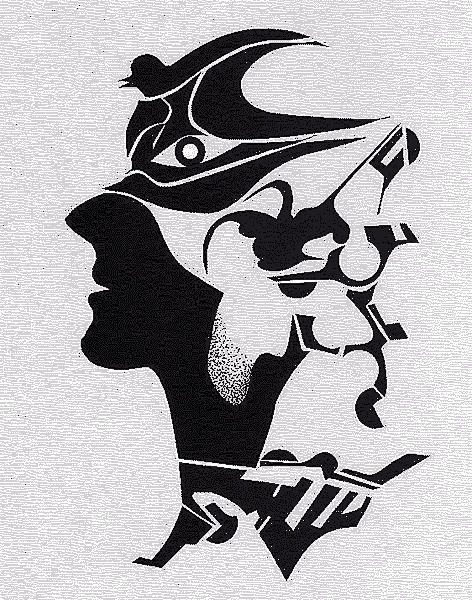
DESEN258 KUCUK, art by Üzeyir Lokman ÇAYCI

Interview
from Duotrope Digest
|
|

Debra Purdy Kong, writer, British Columbia, Canada I like the magazine a lot. I like the spacious lay-out and the different coloured pages and the variety of writer’s styles. Too many literary magazines read as if everyone graduated from the same course. We need to collect more voices like these and send them everywhere.
Children, Churches and Daddies. It speaks for itself. Write to Scars Publications to submit poetry, prose and artwork to Children, Churches and Daddies literary magazine, or to inquire about having your own chapbook, and maybe a few reviews like these.
what is veganism?
vegan action
MIT Vegetarian Support Group (VSG)
functions:
For More Information Please Contact: Deborah Anderson dja@crest.org or (202) 289-0061
 
|